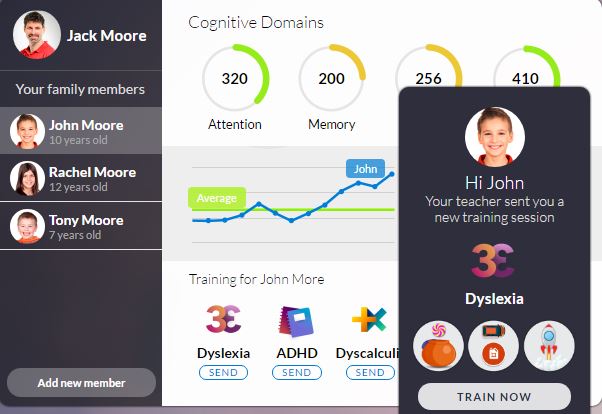
Self-appraisal: apply this method to improve your performance.
What is self-appraisal? What is it for? What are its advantages and disadvantages? In this article, we will answer these questions and more. Also, we will give advice so that you can apply, self-evaluations to any aspect of your life. This method is not only great for students, it’s also necessary to establish what abilities are needed from us in different areas of life.
Self-appraisal: Meaning and importance
What is self-appraisal? A self-appraisal or self-evaluation is a method that allows evaluation of one’s own strengths and weaknesses in a specific task. The difference from hetero-evaluation and co-evaluation, is that the first is usually done by your boss or a superior and the latter is done by members of your group.
It’s possible to do self-assessments or self-appraisals through different methods. They are an essential tool in order to face with assurance any challenge. If we want a positive outcome it’s important to do a self-assessment in order to extract convenient conclusions and act accordingly.
Practice tests in driving education or at the end of a book chapter are examples of self-appraisals. Here you will find out everything you need to know so you can adequately estimate your knowledge and performance in different areas.
What are the purpose of self-appraisals?
We have all done have done a self-appraisal for one reason or another, be it to cause a good impression public speaking, to test our memory, or to inquire our strengths and weaknesses as friends or partners, etc. We will write the areas in which self-appraisal is key and how to use this tool.
Self-Appraisal in education
Regardless of the education stage, self-evaluation of knowledge, aptitude and cognitive abilities is essential to pass any subject. Generally, even if we haven’t done a self-assessment, when taking an exam or giving in a paper, we have an idea what the outcome might be. However, taking practice tests beforehand may help adjust our skills to the task objectives and help us overcome our academic challenges with precision and effectiveness. Self-appraisals allow each student to learn at their own pace in a responsible manner.
Nerves before an exam or a challenge is something natural in spite of our preparation. However, if we have practiced and corrected our mistakes previously we can tackle the task with trustworthiness and self-control. On the other hand, professors can also benefit from this tool to enhance their work performance or even make self-appraisal a class objective.
Neuroscience and educational neuroscience have aimed to improve formative assessments and self-appraisals in schools. CogniFit educational technology and platform, based on neuro-education, is one of the most popular and used computer-based program in educational neuroscience. It has been applied in different schools around the world with high effectiveness for all students, especially for students with special needs or learning disabilities.

Self-appraisal: CogniFit neuro-education evaluation
This scientific resource, designed to optimize self-appraisal and educational processes, has been created for educators and has proven to be quite effective in exploring cognitive processes involved in learning.
This CogniFit tool evaluates different cognitive areas that can help teachers, parents, and students know themselves better and identify certain neurological causes related to school failure.
Through this tool, CogniFit, develops personalized cognitive training and rehabilitation for children so that they can improve their cognitive abilities such as attention, memory, planning and others that are fundamental for learning and performance in different subjects.
How does it work? This tool is easy to use, the first is for students to develop a baseline by completing the full cognitive evaluation. This self-evaluation and its report will determine with precision which cognitive areas are strong and which require training. All of the brain games developed by CogniFit have been designed and validated clinically in order to identify cognitive strengths and weaknesses involved in learning.
Also, using the results of this initial evaluation, CogniFit program, designs and programs specific training for each child according to their needs.
School failure is one of the biggest concerns in the educational system. Therefore it is of importance to teach about brain knowledge in education. For students to develop full learning skills it’s important for schools to have neuro-educative tools at their disposal.
Self-Appraisal at work
Self-assessment at the workplace should become a habit for most of us. Some companies ask their employees that they self-evaluate periodically while others just expect the initiative to come from themselves.
When faced with a promotion or discovering that we are not being efficient, it’s crucial to reflect on our strengths and weaknesses in order to maximize our capacities and correct our mistakes. To elaborate a previously reasonable diagnosis is the first step to problem resolution.
Moreover, self-appraisal is not the only thing necessary when evaluating our performance. If the analysis of our self-evaluation is correct, we can even manage to increment our motivation, self-efficacy, and self-control. Sometimes we are stuck in our ways and can’t see a different way of doing things, making it difficult to leave our comfort zone. However, asking ourselves if we are responsible, on time, team players, organized or have other qualities that are relevant for our job might help us find other opportunities. Stopping to examine our work situation in a holistic and unbiased way may open the doors to improving our performance, work relationship, correcting mistakes, etc.
Self-Appraisal in health
There are signs and symptoms relative to our mental and physical health that we can observe in our bodies. Checking our body for these signs is important when detecting or discarding any diseases. Negative thoughts and self-evaluations can cause acne or other skin problems. Nonetheless, if after a self-appraisal we notice something unusual it’s important not to rush into conclusions without consulting with a physician or other professionals capable of professionally making a diagnosis. Currently, there are several online cognitive assessments, that help us measure our cognitive abilities and understand brain areas and brain functions.
Self-evaluation in everyday life
It’s common for people to question their acts and thoughts. Have I offended him with my words? Is this outfit fit for an interview? It’s normal, healthy and acceptable to reflect on our day to day actions (unless we are being irrational or too hard on ourselves).
In this case, we don’t have specific parameters from which to make a self-evaluation. Everyone is free to choose what are their aspirations and goals. Our well-being depends mainly on who we want to be and what aspects we consider relevant. Therefore, our self-appraisals will differ from person to person.
There are no reliable, valid or fair guides about what models should we follow when doing a self-assessment, however, we must not let subjectiveness lead the way. Aspects such as our social relationships, how much time we dedicate to what makes us happy if we behave according to our values and other aspects of our personal life should be reviewed periodically in order to develop our personal growth.
Self-Appraisal: Examples
With these examples, you will be able to apply these different self-appraisal methods to the areas you consider most important. The most crucial thing to keep in mind is that you must feel comfortable with the method and it should adapt to your goals.
- Book: textbooks usually have different chapters which end with a review section where they invite readers to critically think about aspects in the chapter and sometimes even include mini assessments or tests. This is a self-appraisal that allows checking how much knowledge we retained of the subject at hand.
- Digital resources: Web pages and apps that enable us to evaluate our knowledge are in constant growth. Online self-appraisals or self-evaluations give immediate answers to different questions and are accessible at any moment in time. Unfortunately, they are limited to closed answers and don’t leave much space for creative answers. For example, we can download tests on a specific topic in Biology or on our knowledge of emotions.
- Self-appraisal sheet: We can write how we think we did in a specific activity, the areas that need improvement, our strengths, how much progress have we made since our last self-appraisal, etc. We may find a document that already includes the questions we need or custom make it fit your needs. In order to create your own, it’s paramount to think about relevant things (for example, Am I nice to strangers), order and rate them accordingly.
Regardless of the format, the fundamental aspect is that we know how to interpret our results and continue practicing motivated. Any resource that helps us learn, maintain information and retain content will contribute to further skill building in any field.
Self-Appraisal: Benefits
Self-evaluations have many benefits, that combined with other strategies are a fantastic tool.
- They are fit for any age: From preschoolers to older adults can benefit from this tool and learn to be critical about themselves (in a healthy way). In each stage in life we have interests and different missions, therefore, we have to self-evaluate ourselves in different spheres. No matter the case, a self-assessment is always going to be helpful.
- They grant us to know our level in a specific task: Sometimes we think we have tried everything in order to reach our goals. We have been polite to our neighbors, we have read loads of information on leadership, etc. However, we might not be adapting how we should to the different circumstances. If the self-appraisal is done correctly, it is easier for us to tackle our goals with a more realistic approach.
- Useful way to practice: Self-appraisal facilitates knowledge and abilities in a flexible and practical way that we can adapt to our needs. They are a perfect addition to activities we decide to do, regardless of the activity itself.
- Reinforces knowledge: When taking a moment to establish new goals, we usually review the subjects we studied or focus on a specific aspect of our life. When performing a self-evaluation we tend to make connections between ideas, enabling for them to be retained in our long-term memory.
- Helps us get to know ourselves better: Self-appraisal stimulates self-examination. It not only allows us to dive in our general knowledge but also leads us to question personal aspects of ourselves regardless of the purpose of the self-evaluation. For example, the things we most question are our sense of responsibility, virtues, defects, etc.
- Encourages independence: self-appraisal is a habit we should incorporate in our lives since it permits us to control our progress and deficits and helps us be more responsible and independent when dealing with tasks.
- Increases our motivation: Receiving feedback can motivate us to continue working hard. Knowing our deficiencies and still being able to get good results is a good incentive to continue. Are you up for a self-appraisal?
Self-Appraisal: Tips to improve learning
Do self-evaluation relaxed
If you are tired, stressed or for some reason can’t concentrate in the self-appraisal, it’s better to postpone it. If you carry on in that state, your performance will decrease and your results won’t be representative.
Be realistic
Only by performing a self-assessment we won’t progress, we need to establish a specific goal. For example: improve our memory.
Be honest with yourself
It’s tempting to perform a self-appraisal guided by a book that contains answers or have a friend help us answer, or search the internet for the best option, etc. However, this is just a way to cheat ourselves. If we want to take advantage of this tool, we have to be as truthful as possible.
See failure as a good thing
It’s normal to fail and our self-appraisals will not be what we expected. Don’t beat yourself up about it. It’s important to recognize our mistakes but also our merits. It’s important to know the weight of our criticism on ourselves. Pessimism will only come back as negative performance.
Be organized
If you want to progress it’s important to be systematic in your actions and never stop challenging yourself. If meditating these aspects is difficult, set a time and place for self-appraisal, it doesn’t take much time and the benefits are worth it.
Test different types of self-appraisal
You might not like a multiple choice test but rather short essay questions where you can write about your opinions and knowledge. It’s ok to try different methods and you can even combine as many as you like in order to achieve a broader perspective.
Take advantage of new technologies
Recently, neuro-education is booming. Thanks to new advances in this field and in different technologies, life is changing rapidly and many resources are being created to increase the quality of life. Each day we have more information on how our brain works.
CogniFit is a leading company in cognitive evaluation and cognitive stimulation. It’s mainly for professional researchers and doctors. However, anyone can have access to its online platform. Through different and fun brain games it makes it possible to detect and train cognitive areas that need a bit more exercise.
Thank you for reading. Have you ever performed a self-appraisal? Do you think it’s a good tool? What strategies do you use? Please feel free to comment below.
This article is originally in Spanish by Ainhoa Arranz Aldana, translated by Alejandra Salazar.














